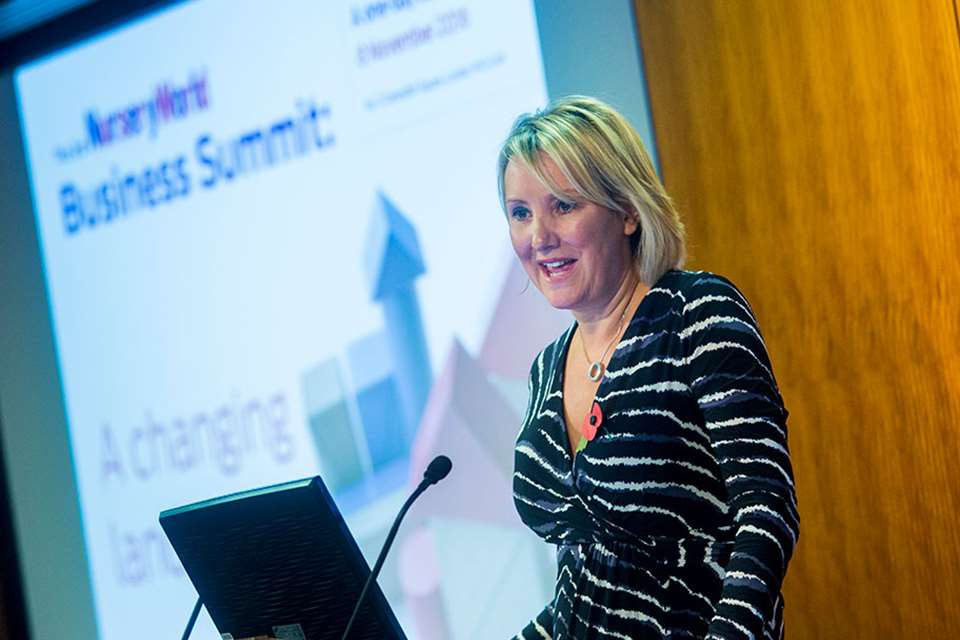Early years funding: minimum rate 'still not enough'
Thursday, December 1, 2016
Concerns have been raised by the early years sector that even with the increase in funding rates, many settings won’t be able to deliver 30 hours of free childcare sustainably.

Earlier today, the Department for Education announced a new early years funding formula which will see early years settings receive a minimum of £4 per hour to deliver the three -and four-year-old places for the Government's 30-hour free childcare policy. Currently some settings receive less than £4 an hour.
As part of the announcement, the DfE revealed it is reinstating the quality supplement and providing extra funding for children with special educational needs and disabilities.
While early years organisations have welcomed the additional investment, they argue it still isn’t enough to cover the cost of providing the places as the minimum rate and funding allocations are set to flatline from 2017. At the same time, nurseries are facing above-inflation wage increases, driven by the National Living Wage, and a rise in business rates next year.
Purnima Tanuku, chief executive of the National Day Nurseries Association (NDNA), said, ‘Many people in the nursery sector will remain bitterly disappointed that they will be not be given the level of funding to allow them to deliver 30 funded hours sustainably.
‘While it’s welcome that the Government has listened to concerns, looked at the principle of a minimum level of funding and allocated more money to address the lowest funded local authorities, the small uplift in funding doesn’t go far enough.
‘Nurseries are ideally placed to deliver 30 hours, but conditions have to be right. NDNA is clear that if enough funding can’t be found to plug the gap, then nurseries must be allowed to treat Government funding as a contribution to the cost of a place with parents able to make up the difference at their chosen childcare provider.’
Ms Tanuku's comments were echoed by Neil Leitch, chief executive of the Pre-School Learning Alliance.
He said, ‘While this is undoubtedly a positive step in the right direction, it remains to be seen how much of an impact this will have on providers' sustainability in the long-term. Some areas that are seeing significant falls in funding will not actually be affected by today's announcement, and so it's clear that there is much more to be done to support providers in such areas.
‘What's more, we are still in a situation where the early years funding rates that local councils will receive next year will remain stagnant until 2020, while business costs will continue to rise. This is not sustainable and must be addressed if the Government is to ensure the sector can survive in the long term.
‘As such, while increased funding is undoubtedly welcome, it is important not to confuse "more money" with 'enough money'. For many providers, the difference between the cost of delivering 'free entitlement' places and the funding received from Government remains significant, and unless this gap is closed - as opposed to narrowed - the problems facing the sector will remain.’
Labour’s shadow early years minister Tulip Siddiq said that the Government’s plans ‘fall woefully short of what is needed for nurseries to deliver the 30 hours free childcare.
She argued, ‘The Tories have no proper plan to improve the quality of sustainability of childcare providers. As such, parents children and our economy will pay the price.'
The Family and Childcare Trust said that the increase in rates alone is not enough to bring about improvements to the sector.
Head of policy and public affairs Megan Jarvie said, ‘Improving the quality of early education is not just about how much funding providers receive per child, but is also about the support that providers receive from local authorities – for example, training and development for their staff, and being able to draw from multi-disciplinary support when a child or family needs it.
‘Levelling the funding rate between providers, whatever their sector, offers an opportunity to also level expectations on the quality and accessibility of the provision. If maintained, private, voluntary and independent providers are all now receiving the same level of funding, we would like their staff to have the same pay and qualifications, and for children with special educational needs and disabilities to be able to access and have a positive experience with all providers.’
The Local Government Association also reacted cautiously to the increase in funding rates.
Richard Watts, chair of the Local Government Association’s Children and Young People Board, said, ‘Both councils and childcare providers are under severe financial pressures, which will continue as measures like the national living wage push up staff costs. We are therefore pleased that the Government has committed to increasing the hourly rate for providers.
‘However, from September next year, councils and providers will be delivering the Government’s commitment to an additional 15 hours of free childcare for working parents. Councils remain very concerned that the increase in funding will not be sufficient to secure delivery of these additional 15 hours to all parents who wish to access them.’
Save the Children said the next set would be to set out a 'clear strategy' to address the 'chronic shortage' of early years teachers.
The charity's director of UK poverty Gareth Jenkins said, 'To make sure that every child gets the very best start in life, it’s vital that the Government invests in a qualified early years teacher for every nursery across England.
'These teachers play a decisive role in preventing children from falling behind in their crucial early years. Yet hundreds of thousands of children – particularly those from the poorest areas – don’t have access to these teachers, and we know that children who start behind are more likely to stay behind throughout their lives.'
PACEY (the Professional Association for Childcare and Early Years) welcomed the announcement, which it said represented ‘two big wins’ for its members – with an increase in funding rates and reintroduction of the quality supplement.
As part of its announcement, the Department for Education also revealed that supplementary funding for maintained nursery schools will be extended to the end of parliament, a move that has been welcomed by Early Education.
Chief executive Beatrice Merrick said, ‘Early Education is pleased to see the supplementary funding for maintained nursery schools extended to the end of the parliament, and the ongoing commitment to further consultation.
'However, there remain a number of areas of concern about the impact of the early years national funding formula, especially in terms of loss of local authority services, and especially in the areas set to see their funding drop. Consultations at local authority level over the next few months will be vital to identify any potential knock-on effect on quality or availability of early education places.’









